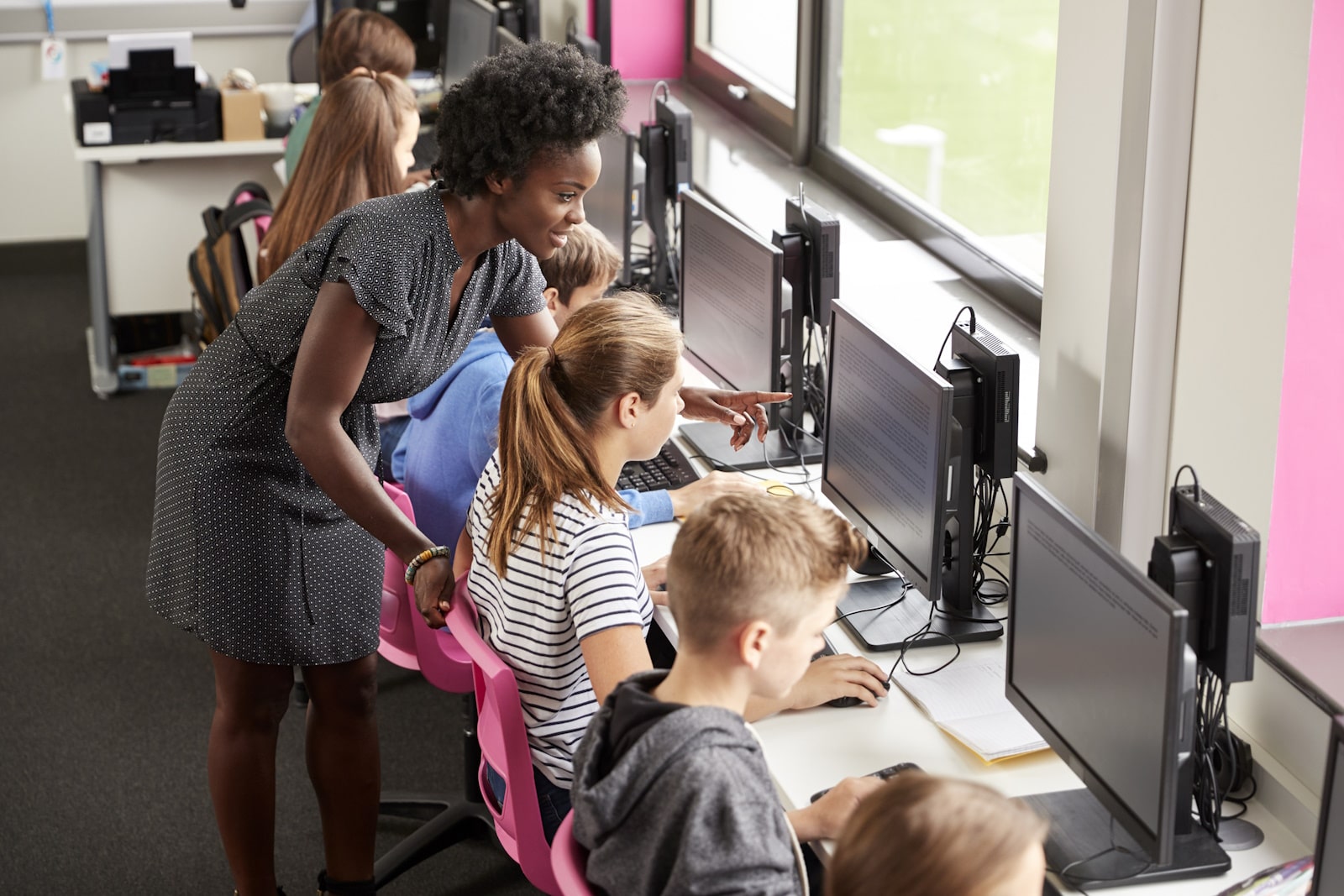
Enhancing K-12 Education through eLearning LMS
In today’s increasingly digital world, eLearning LMS platforms are playing a central role in K-12 education, offering both students and educators the tools to manage and track educational content efficiently. As schools embrace digital learning tools, it’s essential to understand how these platforms can be designed to cater to the unique needs of K-12 students. This blog will explore key features that make eLearning LMS platforms effective in K-12 settings, focusing on interface design, multimedia integration, personalised learning paths, and parental involvement.
Designing Age-Appropriate Interfaces in LMS for K-12 Students
The first step in ensuring that LMS platforms are effective for young learners is to create user-friendly and age-appropriate interfaces. Younger students, especially in K-12, are just beginning to navigate digital platforms, and a well-designed interface plays a crucial role in facilitating their learning experience.
- User-Friendly Navigation: For younger students, simplicity is key. eLearning LMS platforms designed for K-12 education should feature intuitive navigation that allows students to easily access their lessons, assignments, and feedback. This can be achieved by incorporating clear, concise menus, easy-to-read fonts, and simple icons that reduce cognitive load.
- Visual Appeal: Children are highly responsive to visual cues. A visually appealing design with bright colours, playful illustrations, and interactive elements can capture a student’s attention and keep them engaged. Studies have shown that the use of attractive visuals can increase motivation and help maintain focus, which is especially important for younger learners.
- Simplicity and Accessibility: Accessibility is another key factor when designing eLearning LMS platforms for K-12 students. Simple language, easy-to-navigate menus, and accessible features—such as text-to-speech options—can make the platform more inclusive for all students.
The Role of Multimedia Content in K-12 LMS
Multimedia content, such as videos, animations, and audio clips, can transform the learning experience for K-12 students, making lessons more engaging, interactive, and effective.
- Enhancing Engagement: One of the primary advantages of incorporating multimedia in an eLearning LMS is the ability to capture and sustain student interest. Interactive videos, audio, and animations offer dynamic learning experiences that help keep students engaged.
- Supporting Diverse Learning Styles: Not all students learn in the same way. Some may benefit from visual aids, while others learn better through listening or hands-on activities. By integrating multimedia elements, eLearning LMS platforms can cater to a variety of learning styles.
- Improving Retention and Understanding: Multimedia content has been shown to improve knowledge retention. When students are presented with concepts through videos or animations, they are more likely to retain the information and understand complex topics.
Personalised Learning Paths for K-12 Students in LMS
Personalisation is a critical component of modern education, and eLearning LMS platforms are uniquely positioned to offer personalised learning experiences. These systems can adapt content to meet the individual needs and paces of each student.
- Adaptive Learning Technologies: Many LMS platforms feature adaptive learning technologies that adjust content based on student performance. For instance, if a student excels in a particular subject, the LMS can automatically present more challenging material. Conversely, if a student struggles, the system can provide additional resources or simpler exercises to help them build foundational skills.
- Benefits of Personalised Learning: Personalised learning paths keep students motivated by offering lessons that are tailored to their interests and abilities. Students are less likely to feel frustrated or disengaged when the material is suited to their learning level. Research has demonstrated that personalised learning can lead to improved academic performance and greater student satisfaction.
- Implementation Strategies: For educators, it’s essential to regularly monitor student progress through the LMS and adjust the learning paths accordingly. The use of analytics and feedback mechanisms enables teachers to provide timely support and ensure that students stay on track. Personalised learning within an eLearning LMS creates an environment where students can thrive and take ownership of their education.
The Role of Parents in LMS for K-12 Education
The involvement of parents in their child’s education is crucial for academic success. With the integration of eLearning LMS, parents can play a more active role in their child’s learning journey.
- Communication Tools: Many LMS platforms include messaging systems or parent portals that allow teachers to communicate directly with parents. This helps parents stay informed about their child’s progress and any areas that need improvement. Regular communication between parents and teachers fosters a collaborative approach to student success.
- Progress Tracking: Parents can use these platforms to track their child’s performance in real-time. Features like gradebooks, assignment submission logs, and attendance trackers help parents stay up-to-date on their child’s academic achievements.
- Supporting Learning at Home: Parents can use LMS tools to reinforce learning at home, assist with homework, and engage in meaningful educational activities. By staying involved in their child’s education, parents can help create a supportive environment that encourages learning beyond the classroom.
Conclusion
By focusing on intuitive, age-appropriate interfaces, engaging multimedia content, personalised learning paths, and active parental involvement, we can create an educational environment that nurtures young learners and supports their academic growth.
At Sound Idea Digital, we specialise in developing innovative eLearning solutions. Our team is dedicated to creating user-friendly, engaging, and effective eLearning LMS platforms that foster collaboration and enhance student outcomes. Contact us today to find out how we can help you transform your educational approach.



